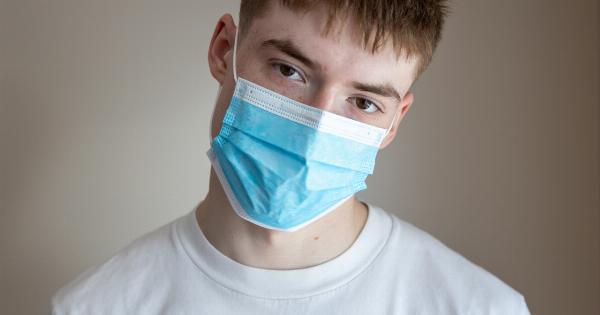The Ebola virus disease (EVD), also known as Ebola hemorrhagic fever, is a deadly virus that causes severe illness in humans and animals.
It was first discovered in 1976 in the Democratic Republic of Congo, and since then, there have been several outbreaks in Africa. The virus spreads through direct contact with bodily fluids of infected people or animals. Symptoms of the virus include fever, headache, muscle pain, weakness, vomiting, diarrhea, abdominal pain, and bleeding.
There is no specific cure or vaccine for the virus.
Why are young children more vulnerable to the Ebola virus?
There are several reasons why young children are more vulnerable to the Ebola virus compared to adults. Firstly, young children have weaker immune systems compared to adults.
Their immune systems are still developing, which makes them more susceptible to infections. This makes it harder for children to fight off the virus, and they are more likely to develop severe illness.
Secondly, young children are more likely to come into contact with infected bodily fluids of their sick family members. Children are naturally curious and like to touch things, which means they are more likely to touch contaminated surfaces or objects.
They also may not understand the seriousness of the disease and may not take the necessary precautions to avoid infection.
Thirdly, young children may be breastfed by their infected mothers, which increases their risk of exposure to the virus. Ebola virus can be transmitted through breast milk and other bodily fluids such as semen.
Impact of Ebola virus on young children
The impact of the Ebola virus on young children is devastating. Since young children have weaker immune systems, they are more likely to develop severe illness and are at a higher risk of dying from the virus.
According to the World Health Organization (WHO), children aged under 5 years are at the highest risk of dying from the virus. Of the 28,616 confirmed cases of Ebola virus disease during the 2014-2016 outbreak in West Africa, 4,181 cases were in children under 18 years of age.
The virus also has a significant impact on the mental health of young children. Being infected with the Ebola virus can be a traumatic experience for anyone, but for young children, it can be particularly scary.
They may not understand what is happening to them, why they are isolated, or why they can’t see their family members. This can lead to feelings of anxiety, fear, and loneliness.
Prevention measures for young children
Prevention is crucial to protect young children from the Ebola virus. Here are some measures that can be taken:.
Vaccination
There is currently no specific vaccine for the Ebola virus, but a vaccine called rVSV-ZEBOV has shown promising results in clinical trials. The vaccine has been shown to be safe and effective in preventing Ebola virus infection.
In 2018, the WHO declared the vaccine as pre-qualified, which means it can now be used in outbreak settings.
Hand hygiene
Hand hygiene is a critical preventive measure in the fight against Ebola virus.
Young children should be encouraged to wash their hands with soap and water regularly, especially after using the bathroom, before eating, and after being in contact with sick people. If soap and water are not available, an alcohol-based hand sanitizer can be used as an alternative.
Safe burial practices
During a Ebola virus outbreak, it is important to have safe burial practices in place to prevent the spread of the virus.
Young children should be kept away from the burial site and should avoid touching or coming into contact with the bodies of infected patients.
Physical distancing
Physical distancing is another important preventive measure to reduce the spread of the virus. Young children should be encouraged to avoid close contact with sick people and to maintain a distance of at least one meter from others.
Children should also be encouraged to wear a face mask in settings where physical distancing is not possible.
Isolation
If a family member is infected with the Ebola virus, young children should be isolated from the infected person to prevent the spread of the virus. They should be cared for by a healthy caregiver who follows all the necessary precautions.
Conclusion
The Ebola virus is a deadly virus that can have a devastating impact on young children. Young children are more vulnerable to the virus due to their weaker immune systems and increased risk of exposure to infected bodily fluids.
Prevention measures such as vaccination, hand hygiene, safe burial practices, physical distancing, and isolation can help protect young children from the virus. It is crucial for parents, caregivers, and health workers to take these measures seriously to prevent the spread of the virus and protect young children from the devastating effects of the Ebola virus disease.






























